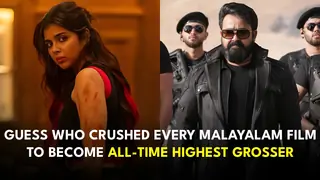| | |
| | Dev Anand on S.D. Burman
-Rajiv Vijayakar (November 2002, Screen India) http://www.screenindia.com/fullstory.php?content_id=7 Twenty-seven years ago, on the October 31, 1975, music maestro Sachin Dev ('Dada') Burman achieved immortality after a career that began in Mumbai with Eight Days and Shikari in 1946. Aristocratic and literally blue-blooded, Dada Burman will always be ranked high among the greatest composers in the history of film music (see box). A genius who worked for creative satisfaction and the pursuit of excellence rather than economic gratification, the composer-singer was one of the pillars of Navketan, with which he was associated from the 1950-made Afsar to Prem Pujari (1970), Tere Mere Sapne (1971) and Chhupa Rustom (1973). And who else but Dev Anand, the founder of Navketan and the hero of dozens of Dada Burman-composed films, can best recall the giant who shared his thirst for variety, creativity and novelty? After all, unlike the Dilip Kumar-Naushad music, that was stepped in classicism, and the Raj Kapoor-Shanker-Jaikishan team that marketed popular melody, Dev Anand-S.D. Burman music was a synergy of youth and substance, of pop-appeal and depth. Perhaps, instead of terming this as one legend remembering another, we should say, one young man remembers another. Over to Dev Anand, whose association with the versatile composer spanned almost three decades: How would you capsule your bond with Dada Burman?
I revere, I admire, I loved Dada Burman! He was a part of the Navketan family, and was our boss in many ways! For he would tick us off anytime he wanted, and be forthright about any film or situation that he was called upon to compose for. Did you change song situations for him then?
No, he would not ask us to change anything. He was too sensible to do such things. He realised that he was doing a film where he had to put his personal opinions aside. How much do you miss him?
I miss him terribly, after all he was around for almost every Navketan film, right from my first production Afsar. And I miss him for three reasons - because of the tremendous moral support that he would give us all, for his sheer genius as a musician, and for his tremendous involvement in every film he did, whether for Navketan or outside. |
| THE S D BURMAN |
| |
TOP 25
1. Abhimaan
2. Aradhana
3. Baazi
4. Bandini
5. Chalti Ka Naam Gaadi
6. Devdas (1954)
7. Guide
8. Jewel Thief
9. Kaagaz Ke Phool
10. Kala Bazaar
11. Kala Pani
12. Meri Surat Teri Ankhen
13. Munimji
14. Nau Do Gyarah
15. Paying Guest
16. Prem Pujari
17. Pyaasa
18. Sharmilee
19. Solva Saal
20. Sujata
21. Talash
22. Teen Deviyan
23. Tere Ghar Ke Saamne
24. Tere Mere Sapne
25. Ziddi |
| |
| |
I remember how he would get these sudden inspirations. He would call me all of a sudden, come over to my place or summon me, and over a drink and a harmonium, compose a tune that will endure as long as film music will. He would then put down the notations, and often the great lyricists with whom we worked — mainly Sahir, Majrooh and Shailendra, and also Pt. Narendra Sharma, Hasrat Jaipuri and Neeraj — would have the song written literally in minutes.
Who chose the poets, Dada or you? Did not Dada usually make the tune first?
Dada and I would jointly decide on the lyricists. Yes, he would usually prefer to compose a melody first and then get the words written, but he could compose excellently too. He composed a superb tune for 'Shokhiyon mein ghola jaaye...' when I told him that I wanted to use the song in my film Prem Pujari. Unlike the music directors of today, he was ingrained in music from childhood.
According to Neeraj, Dada tested him by giving the convoluted metre of 'Rangeela re...' to write on, before accepting him as the lyricist of Prem Pujari?
Well, it's not that Dada tested him. Dada rightly had to be convinced that Neeraj could deliver. Neeraj was a poet and the crafts of writing poetry and film lyrics are completely different.
There were three great music teams then — Dada and you, Naushad and Dilip Kumar, and Shanker-Jaikishan and Raj Kapoor. It was in your collaboration that one saw variety and freshness. Why and how was this according to you?
Well, we saw to it that this was so. All our subjects were contemporary and different, most of them ahead of their times. Dada also liked to vary his playback voices for me according to the needs of the composition. We had Kishore, Rafi and Hemant Kumar, and occasionally Talat Mehmood. And Bhupinder sang a word in 'Honthon pe aisi baat...' for Jewel Thief. Dada did use Mukesh in an early film and Manna Dey in one song too, but not in my productions.
He was also prone to repeated illnesses. Why was that?
It is my personal opinion that this was because Dada was not content because his wife was a dominating woman. Yes, he fell sick very often and I remember that I was adamant about waiting for him to recover during the making of Guide.
Even amidst his best scores, Guide remains a milestone.
Yes. S.D. Burman would get deeply into the core of every subject. I remember how we had recorded a song sung by Rafi. After this, both Goldie and I were completely dissatisfied. We called up Dada and told him about it. 'I find the song very good' he countered. We said that perhaps it could be better. Dada insisted that it was absolutely okay and hung up. Half-an-hour later, Dada called up and said that maybe we had a point. He said that he was coming over the next morning and that I was to arrange for a harmonium. And he played out the melody of 'Din dhal jaaye...' We instantly told him that was it. He smiled, flattered by the praise and said, 'That's why I am here'. This showed that he had been restless by the thought that we were unhappy. Incidentally, we immediately summoned Shailendra, who wrote the mukhda in five minutes flat.
I also remember how he implored us to trust him when we had to leave for Jaipur for the shoot of the film, and a song was not ready. 'Please depend on me. I will send a tune that the world will remember', he said. A few days later, with Goldie and I far away from Mumbai, he sent us 'Aaj phir jeene ki tamanna hai...'. He did this again in Jewel Thief, and the song was 'Honthon pe aisi baat...'
| DID YOU KNOW |
| |
• Sachin Dev Burman hailed from a royal family from Tripura?
• That S.D. Burman sang under K.C. Dey in Seeta (1934), a full 12 years before he began as composer? * That he has the greatest hit average among any composer? * That he almost returned disillusioned to Bengal after his first four years of struggle till Mashal and Afsar happened? * That Dada Burman mainly drew inspiration from Assamese and Bangla folk, but even re-worked Western numbers for Chalti Ka Naam Gaadi?
• That he sang a song with Lata Mangeshkar and son Rahul Dev Burman for Atma Ram's Yeh Gulistan Hamara?
• That he introduced Danny Denzongpa as playback singer, that too for Johnny Walker, in the same film?
• That he composed and rendered one song in son Pancham's Amar Prem? * That he patched up with Lata Mangeshkar after a six-year ego-clash only because son Rahul wanted to record his career-first song with her?
• And that the first song he recorded after this famous truce was 'Mora gora ang lai le...' (Bandini)?
• That according to Dev Anand, because of his poor health at that time, it was son RD who composed most of the mukhdas of Jewel Thief, while Dada worked completely on the antaras, orchestration, rehearsing and recording?
• That his last film was the Sharmila Tagore home-production Tyaag released in 1977?
• That he composed the ebullient 'Maine kahaa phoolon se...' (Mili) from his hospital bed?
• That he opted out of Deewangee (1976) on grounds of ill-health after recording one song, which was retained in the film ('Chal sapnon ke shaher mein tujhe le jaata hoon...')
• That he had been the original choice for Phir Wohi Dil Laya Hoon, Gumrah (1963), Baharen Phir Bhi Aayengi, Sahib Bibi Aur Ghulam and Hare Rama Hare Krishna?
• That his unique 'Aaj phir jeene ki tamanna hai...' (Guide) was a song that began with the antara, 'Kaaton se khinch ke yeh aanchal...' with the mukhda coming as the fifth line?
• That according to playback singer Bhupinder, who was also a musician in those days, 'Roop tera mastana...' from Aradhana was not composed by Pancham as is commonly believed, but by Dada Burman himself. But Dada would very frequently 'steal' his son's tunes, and tell him that he was testing them on the public?
• That the selective composer who never took on more than two to four films, had seven releases in 1973, including Abhimaan, for which he won an award, and Zindagi Zindagi, for which he won the National award? |
| |
| |
Would you recommend him for your outside films?
Never. Most producers went to him because of our association and mutual understanding. He was too magnificent a talent to need or deserve any kind of push.
Since Dada did most of your outside films, was your involvement in the music the same?
Well, I would be consulted, as Dada knew my style and preferences. But essentially, the music would be selected by the filmmakers concerned.
Did Burmanda ever talk to you about his royal ancestry or his past, and how he picked up music while roaming through the forests of Assam and when working in Kolkata?
He once told me that he used to be a tennis player, that's all. But from his habits you could make out that he was obviously royalty. He would always be anointed with rich perfume, and was very fond of a particular kind of paan. If he offered a paan to anybody, it was considered a great gesture and proof that Dada liked that person a lot!
He would be immaculately dressed in a starched, white dhoti, a kurta with three gleaming gold buttons, and a shawl.
How else would you describe him as a person?
Humble, confident, accessible, generous, temperamental and whimsical, sometimes stubborn for a while. He never took on many commitments, for he was paranoid about repeating himself, but would make sure at the same time he got all his money from his producers — no one could fleece him! He was also very health-conscious and diet-conscious because of his fragile health.
A peculiarity about him was that he was responsible for the career-breaks of Asha Bhosle, Manna Dey and Kishore Kumar, but never introduced any significant singer.
Yes, maybe he just wanted to utilise the great singers. But I will tell you one thing about Dada himself. He was so unique as a singer that no one, not even all the great singers could ever reproduce what he would sing. And there was only one exception to this - Lata Mangeshkar! Oh, if only he had the technique of today.
But Burmanda was not happy with the subject of Hare Rama Hare Krishna and its Western ambience. Would he have adjusted to today's demands?
I am absolutely confident that he would have. Dada looked ahead, and his stubbornness never lasted for long. He was open to ideas, change and criticism, which is why he lasted so long. I would call him the greatest composer Hindi cinema has known.
Do you recollect how your association began?
Well, I had heard the music of his first film Shikari and found it very fresh and new from the norm then. Today I would call it typically S.D. Burman music. In those days, he would live in a small tenement up a hill at Sion. A friend called Anadi Banerjee, whom both my friend Guru Dutt and I knew from our Prabhat Film Company days, stayed there and we went to meet him. It was he who took us to Dada. Something made me feel that Dada had arranged this meeting with me. We will never know, but I took him to Chetan and we signed him for Afsar. And the rest, as they say, is history.


























